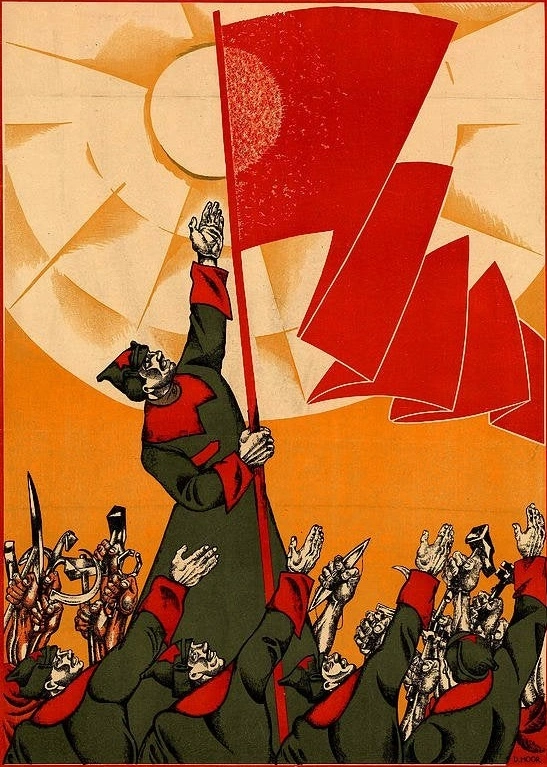Yes, people who fought against the Russians aren’t necessarily Nazis, but people who joined the SS voluntarily are.
I don’t know the context, so I have to take the titles literally and in that case I don’t see the problem. Not everyone who fought against USSR was a Nazi, which is a fact. Did this just fly over my head? It feels like I’m either missing something, or the connection between the headlines just isn’t there.
OP linked the Politico article (it should be under the title/image on most clients) but having read it, this is one of those rare headlines that’s actually worse in context. As OP mentioned it’s about a recent controversy that was stirred up when Canada’s parliament honored Yaroslav Hunka for fighting against Russia in Ukraine, despite his history as a volunteer for the Waffen-SS (an armed paramilitary group that played a major role in the Nazis seizing power and combat throughout WWII).
The article defends Hunka with the absurd claim that joining the muscle of the Nazi party doesn’t make you a Nazi, maybe you just really didn’t like the USSR! Even if you buy that excuse, the article provides no evidence whatsoever that it actually applies to Hunka, they don’t even attempt to make that case. It then tries to draw an incredibly bad-faith equivalency between the USSR and Nazi Germany (and while I’m not going to say that Stalin was anything resembling a platonic ideal of leadership, there’s a pretty big gulf between the USSR and Nazi fucking Germany). After that we get some nitpicking of the claims against Hunka (bringing up the fact that his unit was never convicted of war crimes, which completely glosses over the fact that his unit was, again, part of the Nazi’s armed paramilitary). It then dismisses any criticism of Hunka or the Canadian Parliament’s ovation for him as people being fooled by Russian propaganda through a series of absurd logical leaps. I think things are best summed up by this little nugget towards the end of the article:
However, any further discussion of the error has to be carefully phrased, as any suggestion that Canada is showing contrition for “honoring a Nazi” would acquiesce to the rewriting of history by Russia and its backers, and concede to allegations of Hunka’s guilt that have no basis in evidence.
Again, they are talking about a volunteer for the Waffen-fucking-SS. The muscle for the Nazi party.
I can’t blame a Ukrainian who literally just endured a genocide against their people welcoming the people who kicked out their oppressors. I can’t blame them if they took a gun from them to get revenge, either.
But yeah… the SS? That’s beyond the rank and file, it’s the ideological zealots. The Venn diagram of people fighting under a German flag an ideological Nazis might not be a perfect overlap… but the SS is.
It’s potentially more complex than you make it sound. Ever see that picture of German soldiers being shown photos of the death camps? Most Germans didn’t know about the atrocities being committed by the Nazis, most soldiers didn’t know.
We have the benefit of hindsight and knowing all of the details that were only revealed after the war ended. So we know that the SS were pure evil, but did the Ukrainians that just survived the Soviet genocide against them know that?
It’s all a messed up pile of shit, but we need to be careful about expecting everyone in the past to have the expanded knowledge we possess in the future.
In the case of the SS, ideological alignment was kinda a prereq. The SS was specifically about the “racial policy” of Nazi Germany. It would be impossible to be permitted into the SS without being aware of those policies, and agreeing to enforce them. We’re all memers of the SS specifically aware of the death camps? Maybe not, but they were certainly in the camp of “there exist unpure races which pose a danger merely by being permitted to exist”.
Again, I draw a stark contrast to the regular military. Maybe they were bought into the idea, maybe they were not, it wasn’t really part of their duties to enforce racial policy.
So, would he have known? Maybe not when he applied, but certainly he would have been aware before he was admitted. Enforcing racial policy was literally the explicit job of the specifically the SS.
Anyways, I agree that it’s appropriate to give historical actors the benefits of attempting to morally evaluate their decisions within the context that they were made in.
At the same time, I think it’s important to do the legwork to attempt to understand what that context was.
I can’t speak to the specific reasons a specific man chose to join the SS, but I can speak to the fact that the SS was specifically associated with the duty of enforcing racial policy, and the regular German army was not. I’d need to hear an explanation of why he chose the SS as opposed to the regular German army if his rationale was simply that he wanted to fight Russia.
Great points.
Removed by mod
Removed by mod
Removed by mod
it’s about Yaroslav Hunka, the Waffen-SS volunteer who was recently honored by the Canadian Parliament.
The article is worth a read
And some people here just straight up agreed with it, now you know why it goes like this >.<
There’s even one guy who compared nazis to native Americans.
Good place for someone to post that “you see how that’s worse, right?” meme.
deleted by creator








